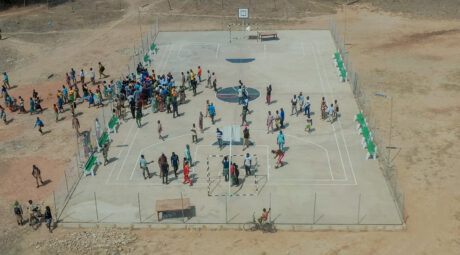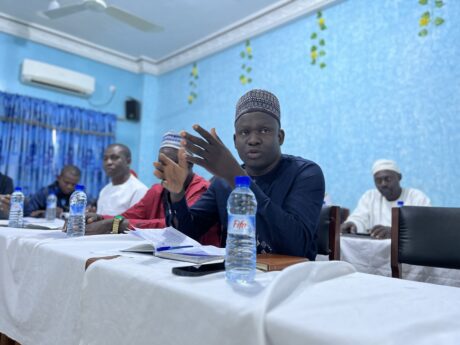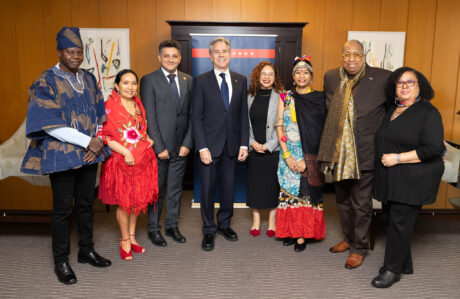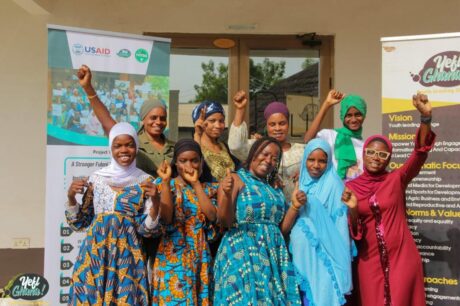At health centers in rural areas of Ghana, nurses stay on site overnight so they can provide care quickly in emergencies. In the farming community of Duong in Ghana’s Upper West Region, the nurses’ quarters were destroyed by a heavy rainstorm in 2020, so nurses had to live off-site, leaving a gap in service.
However, one of these nurses also held a traditional leadership role in the community.
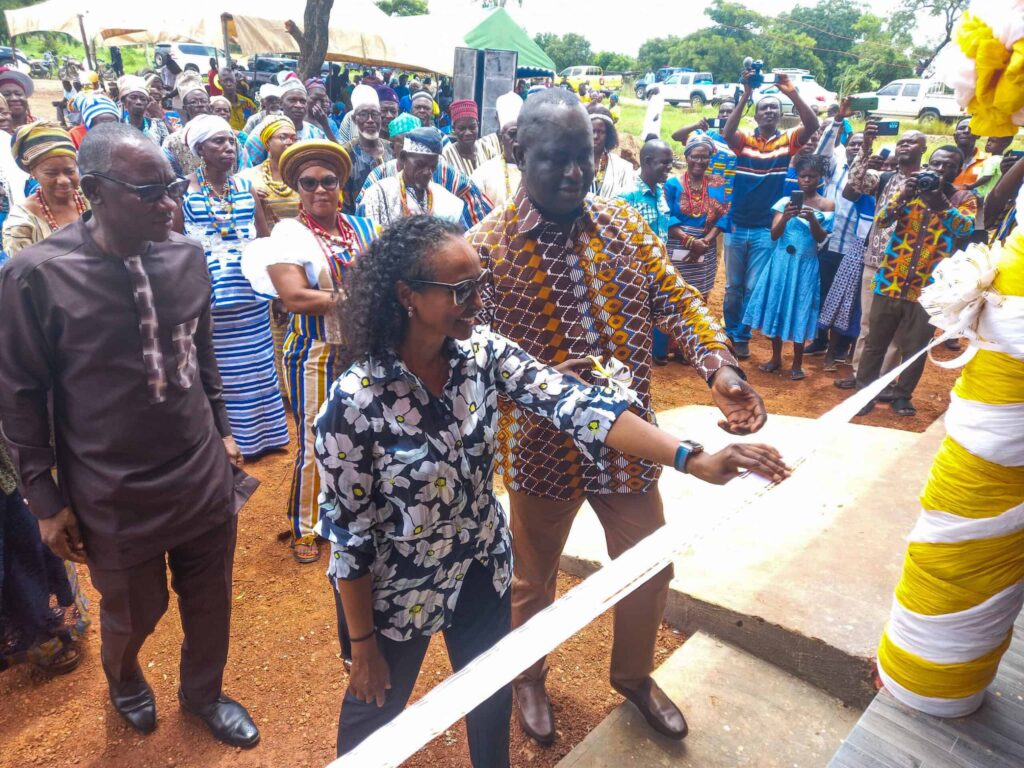
Rosemary Bangzie works with the Duong community health center as a public health nurse for the regional health directorate. She also had been selected as the Queen Mother (Pognaa) of Duong village by elders and representatives of the local royal family.
In Ghana and other African countries, Queen Mothers play a pivotal leadership role in their communities and are often charged with community development and ensuring the local population’s well-being. But many Queen Mothers come into the role with little training or discussion regarding the expectations of their role.
Supported with training from the USAID Office of Transition Initiatives’ Littorals Regional Initiative, she was able to transform a loss in community resources into a gain.
In early 2023, Bangzie participated in a comprehensive training program through the USAID/OTI Littorals Regional Initiative focused on leadership, conflict resolution and preventing violent extremism. A collaboration with the Otumfuo Center for Traditional Leadership, the training program showed Bangzie new ways to leverage her skills to address critical issues in her community.
She began by tackling the lack of adequate facilities at Duong’s health center. In addition to the loss of their living quarters, the nurses had been operating without toilet facilities for five years. Recognizing that the burden upon the nurses was also a hardship for the community as a whole, Bangzie raised the matter in a meeting with community elders.
“The idea of this project came up during one of my general meetings with my elders to discuss issues concerning the development, health and well-being of the entire community,” Bangzie recalls. “This was the period I was undergoing training on leadership, conflict resolution and violent extremism. The training empowered me to make the bold decision that has yielded this building today.”
Bangzie sought and received the support of traditional leaders at the regional level, the Upper West Region House of Chiefs. Underscoring the broader benefit to the community, Bangzie proposed to build not only a two-bedroom apartment for the nurses but to add an adolescent health corner at the health center. Applying lessons from the training in leadership and communication, she initiated fundraising efforts, securing significant contributions within the first two weeks, and kick-started the construction of the new building.
Bangzie had succeeded in uniting the community in support of the project, including financially. However, the ambition of the project exceeded the residents’ ability to donate funds.
“Despite the overwhelming support I received from the community, this project would have taken us more than two to three years to complete,” she explains. “When we finished the first level, we faced resource constraints, and it became challenging to seek individual contributions.”
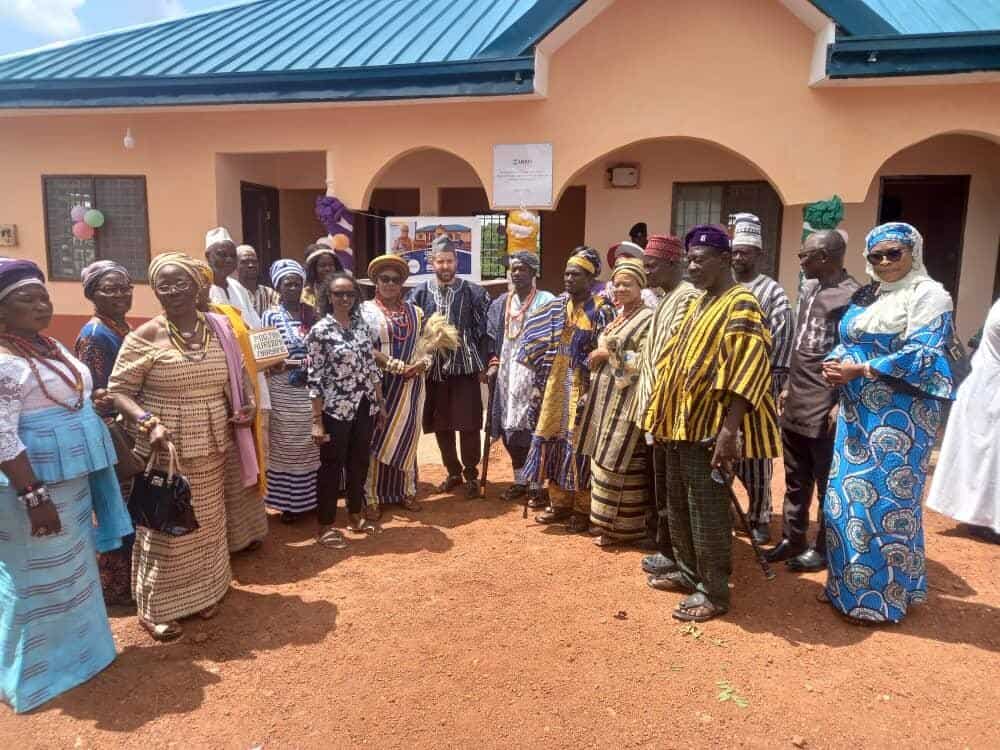
Undaunted, Bangzie turned to the organizers of the training program that had inspired the project. She submitted a formal request to the Littorals Regional Initiative to help complete the construction.
The USAID/OTI Littorals Regional Initiative focuses on promoting inclusive development, amplifying marginalized voices and addressing violent extremism. Through partnerships with local NGOs, the initiative provides support for targeted activities in Northern Ghana, where tensions and vulnerabilities create opportunities for extremist expansion.
Organizers of the Littorals Regional Initiative were impressed by the community’s efforts and the progress that Bangzie had already made in fundraising for the health center. They saw that her project matched the goal of inclusive development and that her organizing work had contributed to social cohesion. So, the initiative responded to the Queen Mother’s call for assistance and provided technical expertise and a grant of $25,000 to complete the project.
“With their assistance, we were able to complete the project within two months,” Bangzie says.
The new facilities are now fully functional and have significantly improved working conditions for the nursing staff. In September 2023, the Queen Mother joined representatives of the Office of Transition Initiatives and the Littorals Regional Initiative and the Regional Minister for Upper West Region, Dr. Hafiz Bin-Salih, at a ribbon-cutting inaugurating the new facilities attended by many community members.
